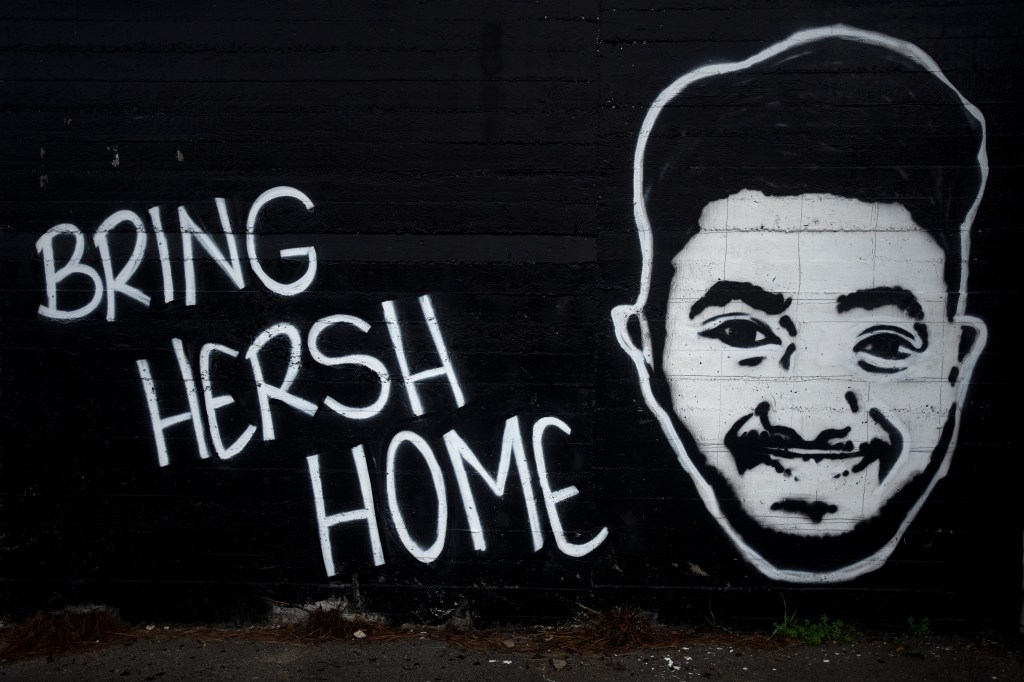Israeli Prime Minister Bibi Netanyahu’s visit to Washington this week will undoubtedly draw protests and counter-protests. None of the spectacle, however, is likely to reflect the war as I saw it during a recent trip to Israel.
My wife’s siblings and mother live in Israel, along with numerous other relatives. Most of them stand on their country’s political left.
Last year I marched with my in-laws in Jerusalem, to protest Netanyahu’s extremist government. At home in Park Slope, Brooklyn I have promoted a two-state solution to the Israeli-Palestinian conflict.
After 10/7 I felt more connected than ever to my Israeli kin. I was angry, frightened and sad, just as they were. Yet my focus quickly expanded beyond the suffering wrought by Hamas’ homicidal rampage.
I was appalled by the refusal of many anti-Israel protesters to condemn Hamas’ crimes. I cringed whenever I saw one of the “Ceasefire Now” signs scattered around my neighborhood, or encountered a passerby displaying a black and white Palestinian keffiyeh.
At the same time the unceasing news coverage of Gaza’s civilian casualties had me asking myself whether the IDF was fighting a just war justly. I never settled on an answer.
During my trip to Israel the war was in its eighth month. We stayed in Jerusalem’s Baka neighborhood.
In contrast to Park Slope’s sporadic “Ceasefire Now” posters, Baka was blanketed with banners and signs saying, “Bring Hersh Home Now!” Nobody ripped them down.
The message was also spray-painted on lamp-posts and doorways, and anywhere else the words would fit. Hersh is Hersh Goldberg-Polin. He is from Baka and was kidnapped by Hamas.
For several years I have attended a Passover retreat that his family frequented when they lived in the states. This year a photograph of Hersh was taped to a chair in the synagogue, and Hamas released a hostage video of him during the holiday. Attending the Passover gathering, and then staying in Hersh’s hometown, made me feel connected to his fate.
Midway through my week in Israel I visited my nephew Jahron. He had spent months as a soldier in Gaza.
Jahron, who is slim with soft facial features, had been tasked with searching for weapons in residential buildings that were often booby trapped. He displayed smart-phone pictures of small bombs and guns in bedrooms and bathtubs.
“Guns next to children’s toys,” he said, somberly. “Sick. Very sick.”
According to public opinion polls Israelis have little sympathy for Gaza’s non-combatants. I asked one of my relatives — a two-state solution supporter — what she thought.
“I know what’s happening in Gaza is horrific, but I don’t have the head-space to think about it,” she said. “I have family members in uniform, and my country’s existence is at stake. There is no room in my brain for anything else.”
On our last day in Jerusalem, 20 people crowded around a lunch table. Several were reservists.
One of them, my nephew Shraga, had just returned from Gaza. He visited Brooklyn a few years ago, before driving an R.V. across the country. In Gaza he drove a tank.
My in-law Shai had also completed a deployment. “It is wonderful to be surrounded by family,” he said, giving a toast. “But we should remember that many families can’t be together.”
I asked Shai when he had reserve duty again. “Not until October,” he said. “But I assume we will be fighting Hezbollah before then.”
My family has, so far, been spared any tragedies from this war. If a full-full-fledged confrontation erupts with Hezbollah, and its arsenal of precision missiles, I will be very worried.
Whenever I find myself thinking that Israelis are cold hearted for their attitude towards Gaza’s non-combatants, I remember my final moments in Israel. We were riding a taxi to the airport, and the car’s radio was on.
A news reporter slowly read the names and ages of eight soldiers who had been killed the day before. As the names were read our driver grimaced, shaking his head side-to-side.
After immersing myself in Israel’s collective siege mentality, the pro-Palestinian protests I have encountered, and Israel-solidarity rallies I have attended, now seem like a sideshow — local events, detached from the daily trauma endured by Israelis and Palestinians.
I may be too far removed from the terror of 10/7 to judge Israel’s response. But my trip clarified what matters to me most about what Israelis call “the situation.”
My hope is that Netanyahu’s visit will lead to a breakthrough concerning negotiations over a proposal President Biden is pushing to end the war, and free the hostages. If the ongoing talks succeed, Gaza’s civilians could start rebuilding their lives, my relatives would be out of harm’s way, and Hersh could come home.
Krull is a lawyer and writer.
